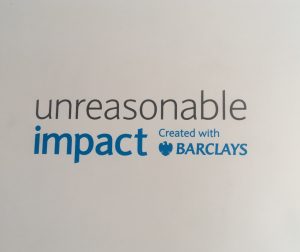I published this article on Linked In in October 2017:
The world faces problems beside which our local issues look like small fare: food, energy and climate to name but three. We’ve always looked to governments working in collaboration to solve them – but where are the ideas that will drive those solutions?
Could we slash the cost of micro-solar power for cooking food and boiling water directly, saving millions in the developing world from the poison of kerosene fumes?
Why don’t we develop a network of dirigibles to act as phone masts, bringing state of the art 4G and 5G communications to every community in the world at a fraction of the cost of the current network?
What’s preventing us from growing healthy food within – and beneath – our cities on a commercial scale, utilising LED lighting and a fraction of the water of conventional agriculture, vastly reducing transport costs?
How about making edible cutlery from biodegradable rice and wheat, massively reducing the mountain of waste plastic, abolishing the transfer of toxins from that plastic into our food?
These are not only brilliant ideas but they’re commercial propositions; if you don’t believe that then ask the entrepreneurs who are putting them into practice, creating the sort of sustainable and inclusive economy that the world needs to survive. Ask the company that’s providing GPS services to allow farmers to optimise their agricultural output and minimise fertiliser use through their mobile phones. Ask the entrepreneur who’s turning industrial waste gases into ethanol. Ask the business that’s manufacturing tasty, high protein chips – from flour made from crickets.
All of the above were amongst 27 companies recently given a platform at the Barclays Unreasonable Impact event, aptly staged at the Royal Institution, the historic home of scientific innovation in London. They were not there to ask for money, though eager impact investors did make up a fair proportion of the audience, and nor were they talking about ideas alone. They were there to tell us about their businesses, companies already employing real people and benefiting, in some cases, millions if not billions of people – especially (but not exclusively) in developing countries.
Unreasonable Impact taught me that innovation, economic inclusion and reducing the cost of doing good are – and must be – part of the purpose of business. In fact, these are all roles that governments (and certainly governments alone) cannot deliver. Every one of the companies we saw – from slashing the price of 3D printing using waste plastic to making the circular economy real through the next generation of recycling – is viable, active and ambitious, motivated by making the world a better place. Scaling impact to create 200 million jobs worldwide suddenly looks possible.
So much about our world is depressing right now: did you know that climate change will halve the world’s supply of coffee in just twenty years? Unreasonable Impact was an optimistic breath of fresh air.
Which reminds me: another of the companies uses innovative technology to bring peerless, accurate, real time, local data on air quality to millions of their subscribers. A breath of fresh air, indeed.